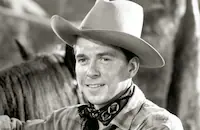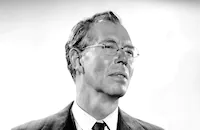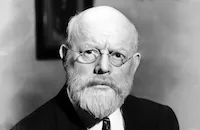Storm Warning

Brief Synopsis
Cast & Crew
Stuart Heisler
Ginger Rogers
Ronald Reagan
Doris Day
Steve Cochran
Hugh Sanders
Film Details
Technical Specs

Synopsis
Model Marsha Mitchell takes advantage of an out-of-town assignment to visit her newly married younger sister, Lucy Rice. On her arrival, Marsha is struck by the unfriendliness of the townspeople, and when the taxi driver refuses to drive her to her destination, she is forced to walk to the recreation center where Lucy has a night job. On the way, Marsha secretly witnesses a lynching. Greatly upset, she finally reaches the recreation center and tells Lucy what she saw. Lucy realizes that the victim must have been Walter Adams, a reporter who had denounced the Ku Klux Klan. Although Marsha recognizes some of the men at the center as part of the lynch mob, she does not expose them when county prosecutor Burt Rainey questions the crowd. Later, Lucy, who is pregnant, takes Marsha home and introduces her sister to her husband Hank. Aghast, Marsha realizes that Hank was also one of the mob. When Lucy tells Hank what Marsha witnessed, he explains that he thought they were only going to try to scare Adams. Not wanting to hurt her sister, Marsha plans to catch the first bus out of town in the morning. A worried Hank then hurries to the recreation center to confer with Charlie Barr, his boss and the Klan leader. Rainey returns, having identified the rope used to hang Adams as belonging to Barr's company, but Barr dismisses Rainey's accusations, and George Athens, the recreation center proprietor, testifies that Barr was there the entire night. Rainey is waiting for Marsha when she picks up her suitcase the following morning. Marsha claims not to know anything, but when she inadvertently reveals that the killers were wearing Klan hoods, Rainey orders her to stay in town for the inquest. Barr then warns Marsha not to blame the Klan when questioned under oath, because Hank killed Adams and will hang for murder. Marsha begs Lucy to leave her husband, but she is too much in love with him to listen to Marsha's pleas. At the inquest, no one, including Marsha, will testify about the previous evening's events, and Adams' death is attributed to unknown assailants. Rainey, who is also getting community pressure to let the matter drop, tells Marsha that she has just given the Klan license to write their own laws. Later, a drunken Hank comes home while Marsha is alone packing and tries to force himself on her, but Lucy interrupts and finally agrees to leave with Marsha. Now Marsha resolves to testify against the Klan. Hank beats her, and later, the Klan brings her before the membership to be punished. Lucy brings Rainey to the meeting, and a gunfight ensues. Hank shoots at Marsha, but accidentally kills Lucy. After Barr is arrested, the mob panics and runs away. Although the Klan's power is broken, Marsha blames herself for the death of her sister.

Director

Stuart Heisler
Cast

Ginger Rogers

Ronald Reagan

Doris Day

Steve Cochran
Hugh Sanders

Lloyd Gough
Raymond Greenleaf
Ned Glass
Paul E. Burns

Walter Baldwin
Lynn Whitney
Stuart Randall
Sean Mcclory
Dave Mcmahon
Robert Williams
Charles Watts
Charles Phillips
Dale Van Sickle
Anthony Ward
Lloyd Jenkins
Dick Anderson
Paul Brinegar
Tom Wells

King Donovan
Duke Watson
Ned Davenport
Len Hendry
Frank Marlowe
David Legrand
Leo Cleary
Alex Gerry
Charles Conrad
Grandon Rhodes
Charles Marsh
Lillian Albertson
Eddie Hearn
Harry Harvey
Janet Barrett
Walter Bacon
Dabbs Greer
Bill Welsh
Tommy Walker
George Lloyd
Mike Donovan
Carl Harbough
Fern Barry
Mary Alan Hokanson
Lee Roberts
Norman Field
Don Dilloway
Michael Mchale
Pat Flaherty
Dewey Robinson

Gene Evans
Joe Dougherty
Bob Stevenson
Bob O'neil
Ed Peil Sr.
Doug Carter

Howard Mitchell
Frank Mccarroll
Mike Lally
Crew
Daniele Amfitheatrof
Milo Anderson
G. W. Berntsen
Richard Brooks
Daniel Fuchs
Carl Guthrie
Chuck Hansen
Ray Heindorf
Leslie G. Hewitt
Clarence Kolster
Leo K. Kuter
Maurice De Packh
Jerry Wald
Perc Westmore

Videos
Movie Clip



Film Details
Technical Specs

Articles
Storm Warning - Storm Warming
She hasn't walked far when she hears angry voices in the darkness ahead. Slipping into the shadows, she sees a mob of men in Ku Klux Klan robes carrying a prisoner who's bound and gagged. The captive suddenly breaks free, runs for his life, and is shot in the back by a Klansman, dying instantly. The mob flees, leaving Marsha to find Lucy at the bowling alley and breathlessly tell what she's just seen. The sisters go to Lucy's house and wait for Hank to get home from work. An electrifying moment occurs when Marsha and Hank see each other for the first time: his eyes fill with lust as he sees her shapely figure and lovely face, and hers fill with horror as she sees that he is a Klansman from the lynch mob - and not just any Klansman, but the brutal one who shot the prisoner down. Marsha's look of fear and loathing turns into a glare of contempt and accusation, and soon the truth about Hank's nature comes out: he's as cowardly as he is vicious, and therefore all the more dangerous.
The fourth main character, district attorney Burt Rainey (Ronald Reagan), despises the Klan for masquerading as a law-and-order society when it's really a scam that allows a few ruthless citizens to control and cheat the ordinary working folks. The murdered man was an out-of-town journalist doing under-cover research for an exposé, and Burt could nail the Klan's leaders if he had a witness to the crime. Marsha is the person he needs, but she doesn't want to destroy Lucy's marriage by turning Hank in, so she lies at the inquest and says it was too dark to identify the men. In the meantime, Klan mastermind Charlie Barr (Hugh Sanders) is threatening Hank with dire punishment if he doesn't get Marsha out of town pronto, and Hank is still itching with lust for her.
Warner Brothers made Storm Warning as a social-problem picture of the kind that served the studio well in the pre-World War II years - Archie Mayo's anti-Klan drama Black Legion (1937), for instance, and Anatole Litvak's popular Confessions of a Nazi Spy (1939). Although the film doesn't specify where Rock Point is located, it was shot in Corona, California, which reputedly had numerous Klansmen in its population, one of whom actually walked up to Reagan and offered to rent KKK robes to the filmmakers. The densely packed screenplay was written by Daniel Fuchs, who had worked on Elia Kazan's intelligent thriller Panic in the Streets (1950) the previous year, and Richard Brooks, whose credits included the novel that inspired Edward Dmytryk's anti-bigotry drama Crossfire (1947). Jerry Wald, the producer of Storm Warning, helped Reagan prepare by sending him articles with titles like "Prelude to American Fascism" and "Who Killed Huey Long?"
Storm Warning loses some of its narrative momentum during the inquest scenes, which follow standard patterns of courtroom noir, and the movie as a whole is less politically pointed than it might have been. Although the chief business of the real-life KKK has always been terrorism and oppression based on race, the film's murder victim is a white man; the camera glimpses only a handful of African-Americans even in crowd scenes; and the Klan, never actually named in the screenplay, seems more interested in financial crime than in promoting white supremacy. These matters aside, the picture regains its force in the later scenes, when Hank launches an all-out attack on the two women in his miserable life. The finale is also potent, showing Marsha taken by force to a Klan rally where she is publicly whipped - quite realistically, although Rogers said later that the lash hurt about as much as "a dozen shoe strings."
The acting is terrific, and Rogers is best of all, even though the part was originally offered to Lauren Bacall, who turned it down. Rogers was a seasoned actress by the early 1950s, and she projects strength and vulnerability with equal skill throughout Storm Warning. Day does well with her first non-singing role, modifying her famous perkiness with accents of doubt and dread. She was thrilled to work with Rogers, her longtime idol, and she was equally thrilled when she met Alfred Hitchcock for the first time soon after the film's release. "I saw you in Storm Warning," the great director said, adding, "Good, very good. I hope to use you in one of my pictures." Sure enough, Day starred in Hitchcock's remake of The Man Who Knew Too Much in 1956.
Cochran makes Hank as dislikable as anyone could ask, although the character seems too obviously modeled on Stanley Kowalski in Tennessee Williams's great melodrama A Streetcar Named Desire, which didn't open as a movie until a few months after Storm Warning but had already made a huge impact (with Marlon Brando as Stanley) on the Broadway stage. Reagan has a convincing air of authority as the DA with a mission, and his slight limp - this was his first movie after breaking a leg in a charity baseball game - gives his character an extra touch of individuality. An enjoyable bonus for today's viewers is getting to hear the president-to-be, so closely identified with conservative politics, speak dialogue about the importance of keeping Washington outsiders from meddling in local affairs.
Wald's first choice of director for Storm Warning was Fred Zinnemann, but he was unavailable, so Wald turned to Heisler, who proved ideal for the assignment. He moves the action at a lively clip, and his atmospheric long takes frame the characters in positions and juxtapositions that heighten the emotional intensity without ever seeming stagy or contrived. He also shows a talent for appropriately disturbing nuances; at the climactic KKK rally, for instance, he shows a Klansman lifting up a little child to give the youngster a better view of Marsha being tortured. Heisler is largely remembered as a director of great actresses, having escorted Susan Hayward and Bette Davis to Academy Awards in Smash-Up: The Story of a Woman (1947) and The Star (1952), respectively. But while it's true that Rogers and Day outshine Reagan and Cochran in Storm Warning, the entire movie is a testament to the artful professionalism he could muster when a project was perfectly suited to his talents.
Director: Stuart Heisler
Producer: Jerry Wald
Screenplay: Daniel Fuchs and Richard Brooks
Cinematographer: Carl Guthrie
Film Editing: Clarence Kolster
Art Direction: Leo K. Kuter
Music: Daniele Amfitheatrof
With: Ginger Rogers (Marsha Mitchell), Ronald Reagan (Burt Rainey), Doris Day (Lucy Rice), Steve Cochran (Hank Rice), Hugh Sanders (Charlie Barr), Lloyd Gough (Cliff Rummel), Raymond Greenleaf (Faulkner), Ned Glass (George Athens), Paul E. Burns (Frank Hauser), Walter Baldwin (Bledsoe), Lynn Whitney (Cora Athens), Stuart Randall (Walt Walters), Sean McClory (Shore).
BW-92m.
by David Sterritt

Storm Warning - Storm Warming
Sean McClory (1924-2003)
Born on March 8, 1924 in Dublin, Ireland, he became a leading man at the famous Abbey Theatre in the early '40s and relocated to the United States shortly after World War II. His first roles were small bits as a police officer in two RKO quickies: Dick Tracy's Dilemma and Dick Tracy Meets Gruesome (both 1947). He eventually graduated to more prestigious pictures like The Glass Menagerie (1950), Les Miserables (1952) and John Ford's The Quiet Man (1952).
After a few more supporting roles in quality pictures: Niagara (1953); the sci-fi chiller Them! (1954); and for John Ford again in The Long Gay Line (1955), McClory turned to television. He kept busy for several years with guest roles in a variety of popular shows: Bonanza, Wagon Train, Rawhide, Gunsmoke, The Outer Limits (1964) and countless others. By the mid-'60s, McClory became slightly more heavy-set, and began tossing off variations of jovial, "oirish" blarney for, yet again John Ford in Cheyenne Autumn (1964); and in a string of Disney pictures: Follow Me, Boys! (1966, his best role, a moving performance as the alcoholic father whose behavior alienates his son, played by a 15-year old Kurt Russell); The Happiest Millionaire (1967), and The Gnome-Mobile (1967), before he returned to television. His final role was in John Huston's acclaimed Irish opus The Dead (1987). He is survived by his wife, Peggy Webber McClory.
by Michael T. Toole
Sean McClory (1924-2003)
Quotes
Trivia
The studio wanted Lauren Bacall and 'Day, Doris' to star in the film, but Bacall went to Africa with her husband Humphrey Bogart to film African Queen, The (1951)
This is the only film in which a character played by Doris Day dies.
Notes
The film's working title was Storm Center. On October 20, 1949, Hollywood Reporter reported that Lauren Bacall was suspended by Warner Bros. after she refused the role of "Marsha." The following day, Ginger Rogers was named as star. According to a October 22, 1949 Los Angeles Times article, Bacall stated, "I am neither a puppet nor a chattel of Warner Bros. studio to do with as it sees fit." Shortly afterward, Bacall was released from her contract with the studio. According to Hollywood Reporter, the production began a two-week location shoot at Corona, CA on November 28, 1949. After completing this film, Ronald Reagan left Warner Bros., where he had been under contract since 1937.

Miscellaneous Notes
Released in United States Winter February 10, 1951
Released in United States Winter February 10, 1951













